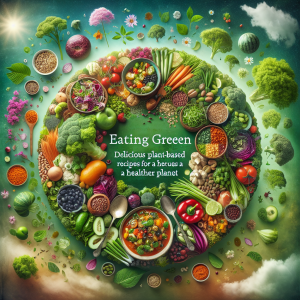Discover the Top Eco-Friendly Alternatives for a Sustainable Lifestyle
Transitioning to a more sustainable lifestyle is an endeavor many are embracing as global awareness of environmental issues grows. Choosing eco-friendly alternatives plays a significant role in this journey, reflecting a conscientious effort to reduce one’s ecological footprint. Opting for these alternatives can lead to significant benefits for both the planet and personal well-being.
First, let’s consider the impact of our daily energy consumption. Solar power is a viable and increasingly affordable alternative. By installing solar panels, homeowners can harness renewable energy, reducing reliance on fossil fuels. Additionally, energy-efficient appliances such as LED bulbs, Energy Star-rated refrigerators, and smart thermostats help diminish electricity usage, further minimizing environmental impact and lowering utility bills.
Water conservation is another crucial aspect of sustainable living. Low-flow showerheads and dual-flush toilets significantly reduce water wastage without compromising effectiveness. Drought-resistant landscaping is an excellent choice in arid regions, as native plants require less water and maintenance. Implementing a rainwater harvesting system for gardening or non-potable use can further alleviate stress on local water resources.
In terms of transportation, electric vehicles (EVs) represent a superior alternative to traditional gasoline-powered cars. Many governments offer incentives for purchasing EVs, and advancements in battery technology promise increased range and faster charging times. For shorter distances, biking or walking not only benefit the environment but also improve physical health. Carpooling and public transportation are also effective in reducing the number of vehicles on the road, leading to decreased pollution and reduced greenhouse gas emissions.
The realm of clothing and fashion is yet another area where eco-friendly alternatives are making waves. Fast fashion has long been associated with negative environmental impacts, from water pollution to massive energy consumption. Investing in sustainable fashion brands that prioritize organic and recycled materials can make a considerable difference. Second-hand shopping is another eco-conscious choice, extending the life cycle of clothing items and fostering a circular economy. Companies focused on sustainability often implement ethical labor practices, further enhancing their appeal.
Home cleaning products often contain harsh chemicals detrimental to both human health and the environment. Switching to products labeled as biodegradable or made with natural ingredients can significantly mitigate these impacts. Homemade cleaning solutions using simple substances like vinegar, baking soda, and lemon are effective and eliminate the need for harmful chemicals. Eco-friendly laundry detergents and reusable dryer balls can additionally reduce water pollution and waste.
The food industry also offers several avenues for sustainable consumption. Organic farming minimizes the use of synthetic pesticides and fertilizers, promoting biodiversity and healthier ecosystems. Supporting local farmers through farmers’ markets or community-supported agriculture (CSA) programs reduces the carbon footprint associated with transporting food over long distances. A plant-based diet, or even reducing meat and dairy intake, can substantially lessen a person’s environmental impact, as livestock farming contributes significantly to greenhouse gas emissions, deforestation, and water use.
Food waste is another critical issue; implementing composting at home can transform kitchen scraps into nutrient-rich soil, reducing landfill contributions and methane emissions. Conscious efforts to plan meals and store food properly can minimize waste and promote a more resourceful approach to consumption.
Personal care products also present opportunities for sustainability. Many conventional items, such as shampoos and deodorants, contain microplastics and toxic chemicals. Transitioning to eco-friendly alternatives, such as solid shampoo bars or refillable packaging, reduces environmental harm and often supports small, ethical businesses. Bamboo toothbrushes, biodegradable floss, and natural cotton swabs are simple swaps that make a marked difference.
Packaging waste, largely driven by single-use plastics, poses a significant environmental threat. Reusable containers, bags, and water bottles can substantially cut down on this waste. Zero-waste stores offer bulk goods, allowing consumers to bring their containers and reduce packaging reliance. Additionally, seeking products with minimal or compostable packaging can further alleviate pressure on waste management systems.
Eco-friendly technology options have emerged in recent years, catering to the needs of digital consumers. Many electronic companies are adopting greener practices, using recycled materials in their devices and offering trade-in and recycling programs. E-readers, while demanding energy for production, reduce paper usage attributed to traditional books, balancing the ecological scales when used extensively.
Infrastructural adjustments also contribute to a sustainable lifestyle. Homes designed or retrofitted for energy efficiency can include high-quality insulation, energy-efficient windows, and green roofing materials, drastically reducing heating and cooling requirements. Community initiatives like urban farming can transform unused spaces into productive gardens, enhancing local food security and fostering community spirit.
Overall, these eco-friendly alternatives represent not just a change in product choice, but a shift in mindset toward more sustainable living practices. By integrating these alternatives into daily habits, individuals not only contribute to a healthier planet but can often experience improved health and well-being, showcasing the multifaceted benefits of embracing sustainability at every level.



